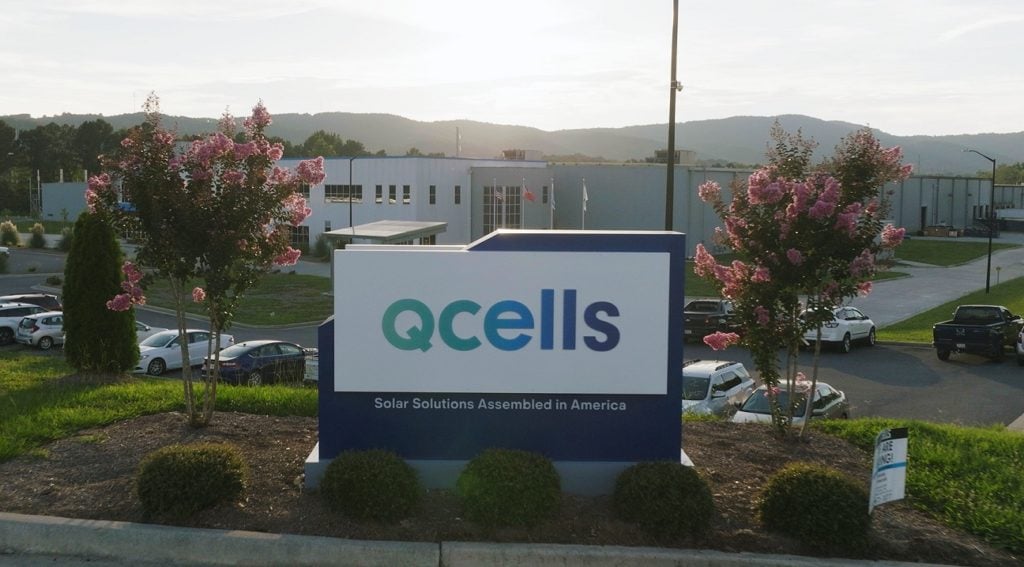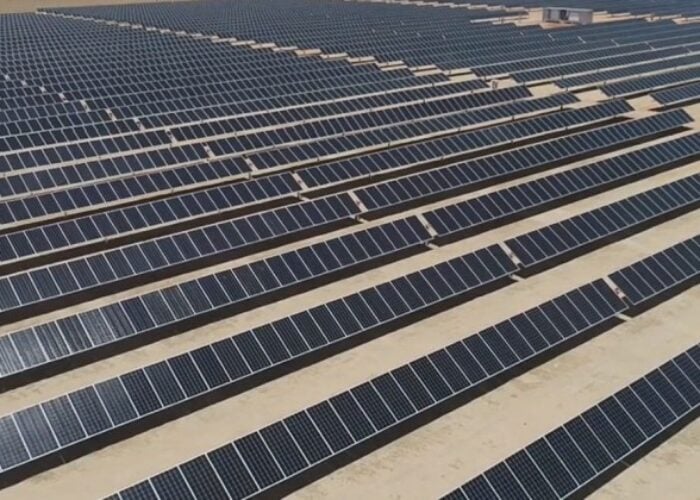
The US Department of Energy (DOE) has issued a US$1.45 billion loan to Korean-owned solar manufacturer Hanwha Qcells to support its vertically integrated manufacturing facility in Cartersville, Georgia.
The Loan Programs Office (LPO) of the DOE announced the conditional loan guarantee yesterday, to be delivered through its Title 17 Clean Energy Financing programme which finances energy supply chain projects and investments in existing energy infrastructure.
Try Premium for just $1
- Full premium access for the first month at only $1
- Converts to an annual rate after 30 days unless cancelled
- Cancel anytime during the trial period
Premium Benefits
- Expert industry analysis and interviews
- Digital access to PV Tech Power journal
- Exclusive event discounts
Or get the full Premium subscription right away
Or continue reading this article for free
The 3.3GW nameplate capacity facility will produce silicon ingots, wafers, cells and modules in what will be the largest vertically integrated solar manufacturing hub in the US. Qcells first announced the Cartersville facility in January 2023, saying the site would represent an overall US$2.5 billion in investment.
The DOE said :“Qcells will make larger-format wafer sizes that lower costs and increase product performance” at the site.
Qcells also operates a 5.1GW module production facility in Dalton, Georgia, as well as a solar encapsulant plant in Bartow County.
In an official statement, the DOE said that the Cartersville facility will benefit from the Section 45X Advanced Manufacturing Credit and enable customers to access the Investment Tax Credit’s domestic content bonus, both included under the government’s Inflation Reduction Act.
The role of solar wafers and ingots in the domestic content bonus has been a bone of contention in the US industry recently. A number of companies, led by the Solar Energy Manufacturers for America (SEMA) coalition – a representative trade body – have called for amendments to the scheme to include solar wafers in its calculations.
The domestic content bonus requires that 40% of a product’s components (based on cost) are “US-made”, a threshold which will rise to 55% next year. SEMA called for the US Treasury to “recognize the individual value” of components of the supply chain in a move which would incentivise investments in domestic wafer manufacturing capacity.
As discussed in a PV Tech Premium feature earlier this year, Qcells’ Cartersville facility is one of the only reliable wafer manufacturing plants announced in the US. The majority of manufacturing plans that have been announced since the IRA passed have been for module production.
In January, Qcells inked a 12GW multi-year module supply deal with technology giant Microsoft. This is one of the largest long-term supply agreements in the US solar industry.
Recipients of LPO loans are expected to develop and implement a Community Benefits Plan (CBP) which requires engagement with local communities and labour. The DOE said that Qcells intends to engage with the Biden-Harris administration’s Justice40 Initiative, which requires that 40% of the benefits of federal investments into the energy transition go to what the DOE called “disadvantaged communities that are marginalised by underinvestment.”
In April, Qcells was among a group of US solar supply chain manufacturers which brought an antidumping and countervailing duty (AD/CVD) petition to the Department of Commerce (DOC), seeking to restrict imports of silicon solar cells from four Southeast Asian countries.






